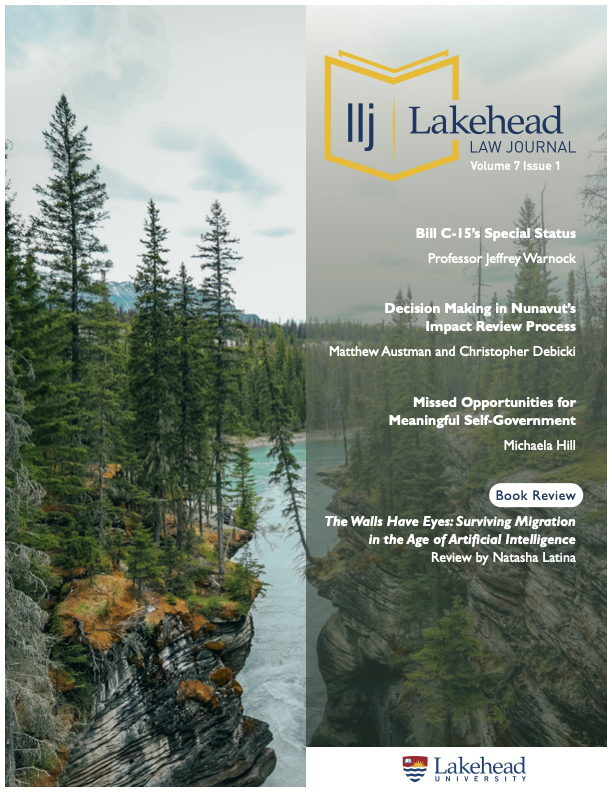Missed Opportunities for Meaningful Self-Government
A Case Comment on Dickson v Vuntut Gwitchin First Nation
Abstract
Despite Indigenous Peoples having been the first practitioners of law in the land we now call Canada, Indigenous laws have largely been ignored and overruled by state law since the time of Crown sovereignty. Even with growing recognition of Indigenous laws and pathways to recognizing self-government, Indigenous laws still largely remain embedded in state systems, subject to state approval, challenge and review. Given the connection between self-government and the wellbeing of Indigenous Peoples, enabling meaningful self-government should be a priority for all state institutions, especially Canadian courts. In practice, enabling meaningful self-government means treating the sole source of self-government as organic (i.e. arising only from inherent rights), and trusting Indigenous laws as equals, capable of standing alone without the oversight of state law and courts. This case comment analyzes the majority reasons in the recent Supreme Court of Canada decision of Dickson v Vuntut Gwitchin, which had serious implications for self-government. The crux of the argument is that the majority’s application of the Charter missed an opportunity to enable meaningful self-government, first by tethering authority for self-government to state action, and then by failing to defer to an available Indigenous-created rights-protection mechanism, showing a lack of trust in Indigenous laws.
Downloads
Published
Issue
Section
License
Authors retain original copyright and grant the LLJ first publication rights. Articles published in this open access journal are free to use, with proper attribution, for educational and non-commercial purposes.


